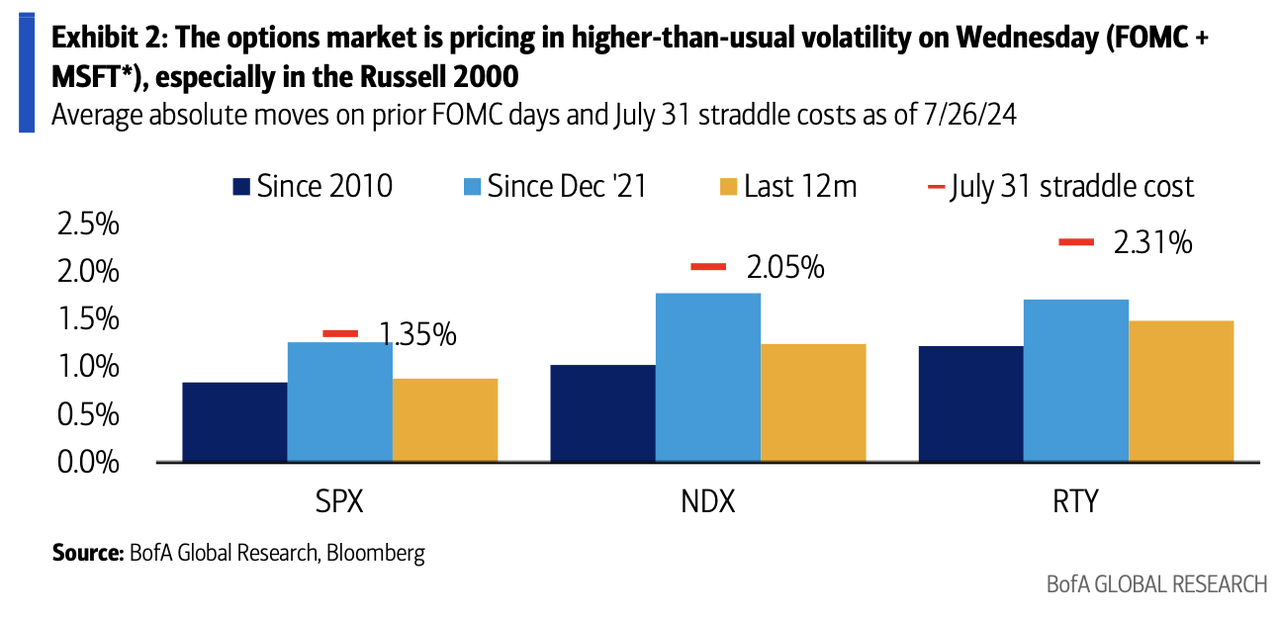
Michael M. Santiago/Getty Images News
The options market was pricing in higher-than-usual volatility for Wednesday’s session, according to Bank of America, which suggested investors protect gains particularly in small-cap stocks after their recent “historic” surge.
The options market was pricing in higher-than-usual volatility, especially in the Russell 2000 (RTY) index of small-cap stocks, Bank of America said in a note. Investors on Wednesday afternoon will look for the Federal Reserve to signal the potential start of its rate-easing cycle this year. Ahead of that, markets will already have in hand quarterly results from Microsoft (MSFT), one of the Magnificent 7 mega-cap tech stocks.
“The implied RTY move for Wednesday is 2.31%, and despite a recent rise in Russell 2000 spot-vol correlation making outright puts expensive, put spreads remain an attractive way for investors to hedge a possible RTY (RTY) pullback after its historic run,” Ohsung Kwon, equity and quant strategist at BofA, said in the note.
This month’s rotation into small-caps from large-cap tech stocks has resulted in remarkable moves by the Russell 2000 (RTY), including marking its highest 5-day outperformance over the Russell 1000 index since 1979, BofA said. The market shift jolted by revived rate-cut expectations has sent the Russell 2000 (RTY) flying up ~9% in July.
A lower Russell 2000 (RTY) is not BofA’s base case, Kwon said. But strong tech earnings and/or a hawkish Federal Open Market Committee “exhibiting hesitation” on cutting rates in September after last week’s stronger-than-expected Q2 GDP report could lead to near term-declines for small-caps, he said. Tech-sector results are also due this week from Meta (META), Apple (AAPL) and Amazon (AMZN).
BofA published this chart of options-market pricing:
Here are a few small-cap ETFs to track: (IJR), (IWM), (VB), (DFAS) and (SCHA).
Source link







